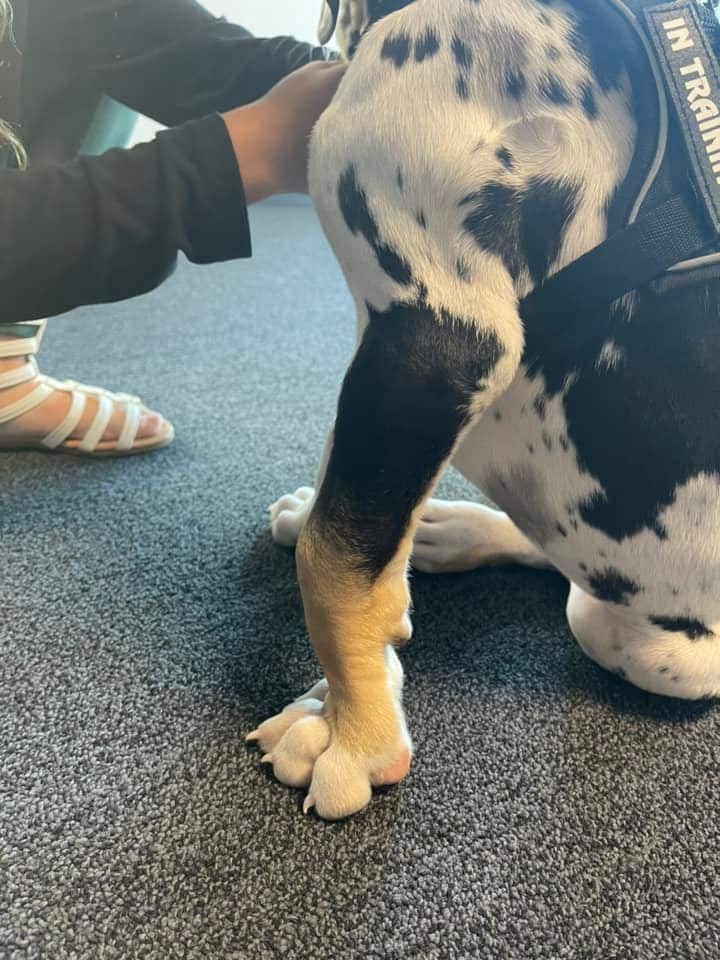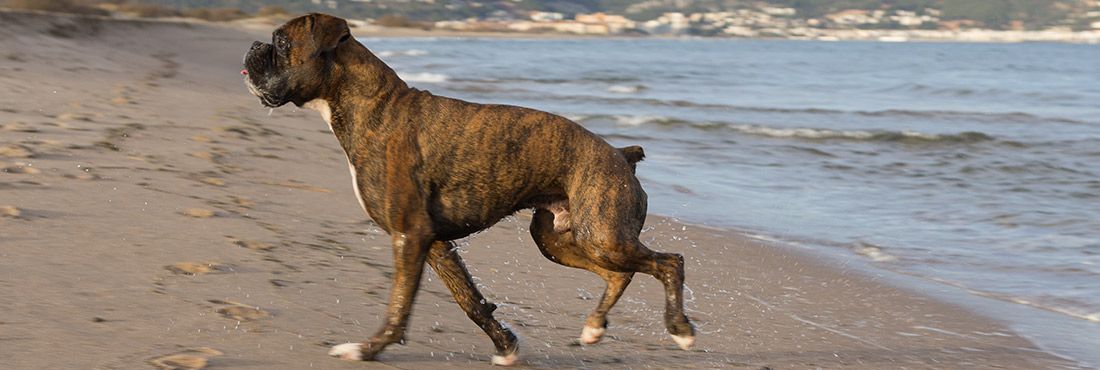Imagine your adorable puppy walking with an unusual gait, its tiny paws curling inward beneath its body. This concerning condition is known as knuckling and can hinder your furry friend’s mobility and overall well-being. Understanding the causes and effective remedies for knuckling is crucial for ensuring your puppy’s optimal development and happy life. Embark on this enlightening journey to unravel the mysteries of puppy knuckling and empower yourself as a knowledgeable pet parent.

Image: www.hellodanes.com
Understanding Knuckling in Puppies:
Knuckling, or carpal flexure, describes a condition where puppies walk on the backs of their paws, with their wrists and ankles bending inward. This abnormal gait can range from mild to severe, affecting one or both front legs or even all fours. Knuckling may manifest as early as three weeks of age or gradually develop as the puppy grows. While some cases resolve on their own as puppies gain strength, others require veterinary intervention or dedicated home care.
Causes of Knuckling in Puppies:
Numerous factors can contribute to puppy knuckling. Identifying the underlying cause is essential for determining the most appropriate treatment approach.
• Congenital Abnormalities: Some puppies are born with structural deformities in their joints or limbs, leading to knuckling. These anatomical issues may require corrective surgery or orthopedic devices.
• Nutritional Deficiencies: Puppies experiencing vitamin D, calcium, or phosphorus deficiencies may develop weak and deformed bones, causing knuckling. Ensuring a balanced and nutritious diet is vital for proper bone development.
• Muscular Weakness: Underlying neuromuscular disorders can weaken the muscles supporting the joints, leading to knuckling. These conditions may require veterinary diagnosis and specialized treatment plans.
• Environmental Factors: Certain environmental aspects, such as slippery flooring or improper footing, can strain puppies’ joints and muscles, potentially triggering knuckling. Creating a safe and supportive environment is crucial.
Fixing Knuckling in Puppies:
Depending on the cause, fixing knuckling in puppies may involve various approaches.
• Conservative Management: For mild cases or those related to nutritional deficiencies, conservative measures may suffice. Gradual exercise on soft surfaces, joint supplements, and a balanced diet can strengthen muscles and support bone development.
• Physical Therapy: Physical therapy, administered by a certified veterinary rehabilitation specialist, can enhance muscle function, improve coordination, and promote proper gait. Exercises may include swimming, controlled walking, and specific massage techniques.
• Splinting or Bracing: In some cases, splints or braces may be recommended to support and align the affected joints. These devices can help correct the puppy’s gait and allow for proper healing.
• Surgical Intervention: Severe cases of knuckling caused by congenital abnormalities or neuromuscular disorders may require surgical intervention to correct underlying structural issues or address muscular imbalances.

Image: www.mypetneedsthat.com
How To Fix Knuckling In Puppies
Conclusion:
Knuckling in puppies can be a concerning condition, but understanding its causes and adopting effective remedies can improve their mobility and overall well-being. From addressing nutritional deficiencies to seeking veterinary intervention, pet parents have a vital role in ensuring their furry companions’ best chance at a healthy and active life. Embracing this guide empowers you with the knowledge and resources to provide the necessary care for your beloved puppy. Remember, early detection and prompt action can make a significant difference in their journey toward a life free from knuckling.